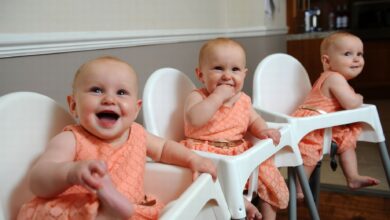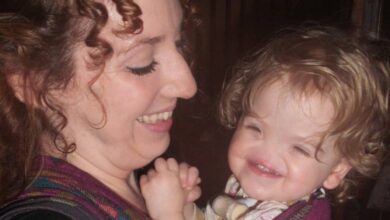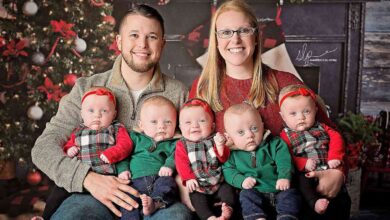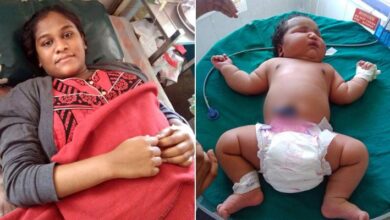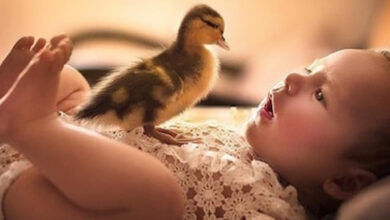Unwavering Love: The Heartwarming Journey of a Baby Girl’s Story Beyond Imperfections
I’ve always desired to become a mother. I was the proudest woman on earth when I discovered I was expectant. I could not stop ruminating about the child who would join our family and whom my spouse and I would adore. The first three months of etatio were filled with anticipation, curiosity, and a great deal of wondering: if it was a boy or a girl, what their name would be, etc.
Daily, we would inform our daughter that Daddy and Mommy were eagerly awaiting her arrival. We were delighted to attend cosltatios every month and observe her growth. This changed during the fourth month of my pregnancy.
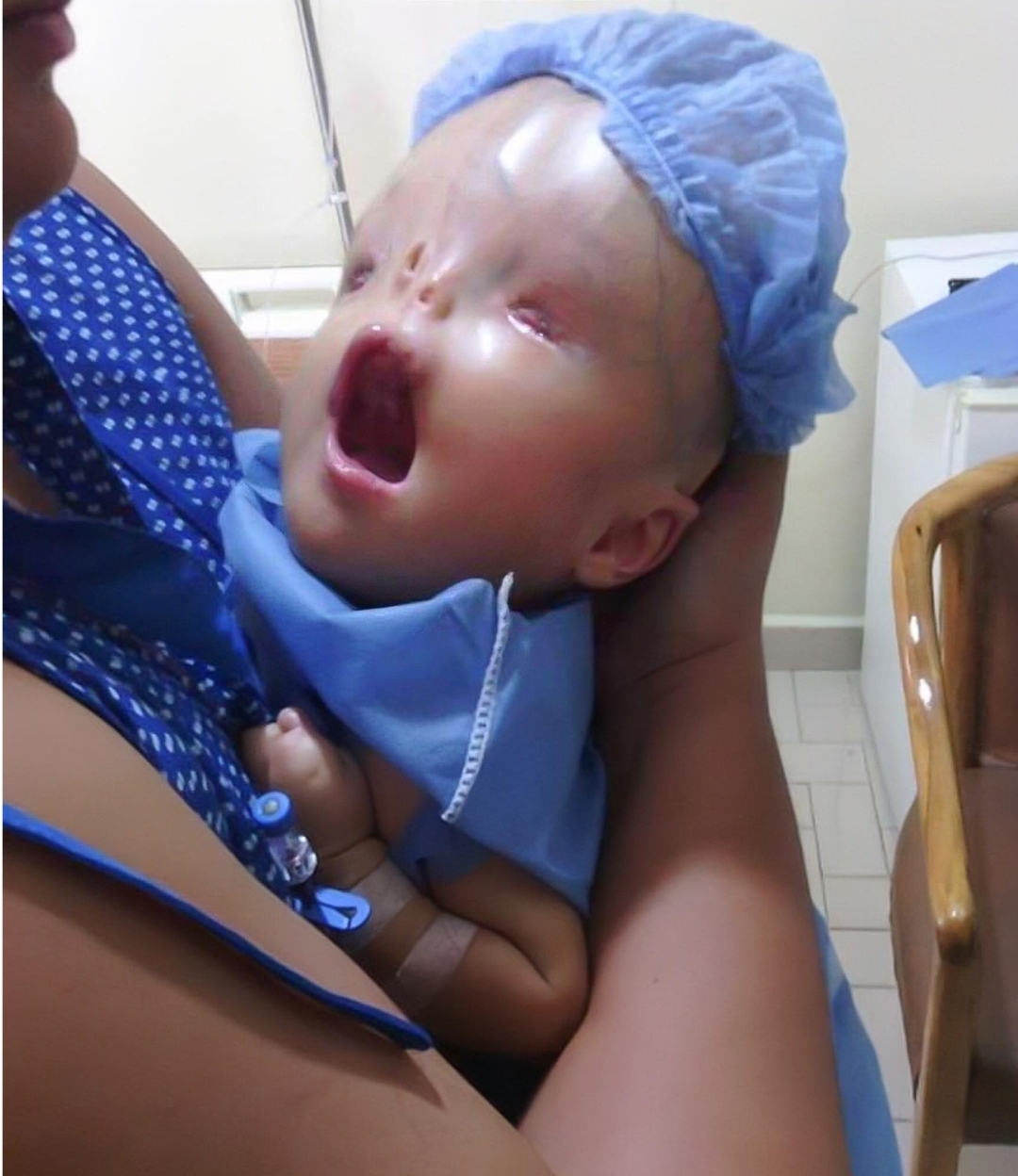
During that appointment, the OB-GYN noticed something aberrant, but he did not provide me with any additional information. Instead, he asked me to conduct a 3D ultrasound so he could examine the baby’s anatomy in greater detail. We scheduled an appointment at a clinic with the necessary instruments for a comprehensive analysis of a fetus’ organs and physiology.
When the time arrived to go to the convention, we were soaked and exhausted. That day was tragic… We discovered that Heliay’s hands, feet, eyes, mouth, ose, k, and a were deformed. Her remaining orgas and colm were normal. The cause of her coditio was miotic Bad Syndrome. In utero, she was etagled by strig-like amiotic bads. This altered her menstrual cycle and impacted her development.
While I sobbed uncontrollably, the physician suggested she doat her orgas. At such a crucial juncture in our lives, her request seemed extremely impolite. We left that office with filled hearts and intact hopes. My spouse and I experienced an unexplainable sensation that was unlike anything we had ever encountered.
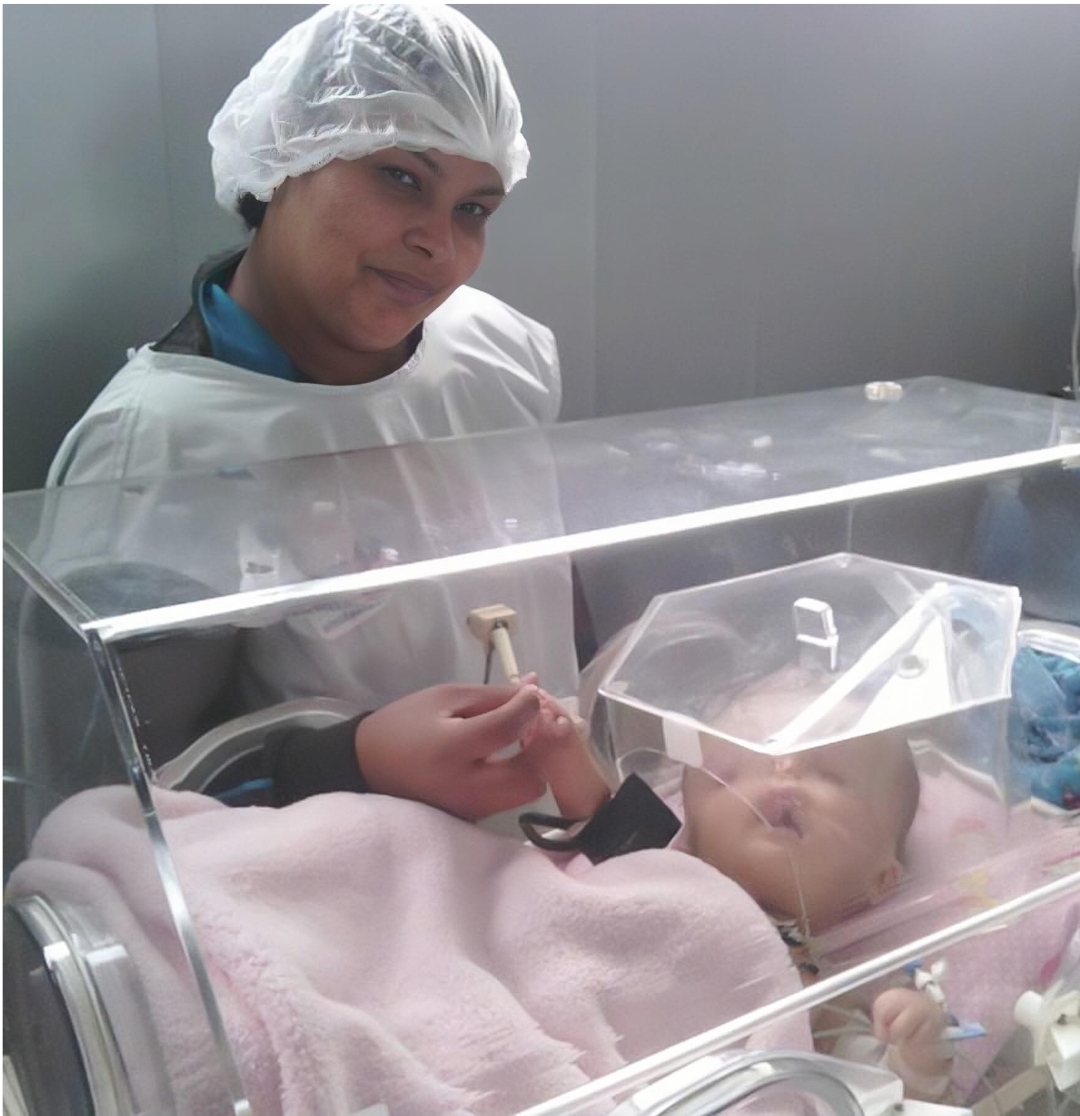
After a long time of crying, we looked into each other’s eyes, embraced, and my spouse whispered in my ear, ‘Let’s keep going.’Would you be interested? I promptly responded, “Of course, I will.” We chose to continue the pregnancy in order to give Heliay a chance. We immediately sought alternative medical options, but the ews continued to worsen. Nearly all of the doctors recommended terminating the pregnancy because they believed Heliay would die in my womb or, if we were fortunate, she would be delivered alive but expire shortly after delivery. I have always believed in God and remained true to my fundamental convictions. He complied with my request.
On August 21, 2015, at 39 weeks gestation, Heliay was delivered via C-section, weighing 10 pounds and measuring 18 inches.
The first few days were challenging. Due to my coditio, I was only able to see her after 24 hours. The rses started murmuring that I didn’t want to see my own daughter and that I was rejecting her. After hearing such compliments, I decided to consume p eve because I was feeling extremely pa. I stroked her face and massaged her hands and feet when I first met Heliay. “Your mother is present,” I informed her. I concede that her appearance may appear average to the majority of individuals. Her ead contained three protrsios in places where her k was improperly formed. Heliay had no brows and a veil of her head that appeared to be about to dissolve. Her eyes and nostrils were nonexistent, and she could not breathe through her two asal openings. She was attractive in her own right, in my opinion.
After 13 days of observation, her father and I were able to return home with Heliay. I felt as though I was at a crossroads and had no notion what to do next. In addition, I reside in Veezela, where the coditios were poor three years ago and have only gotten worse since then. We required medca assistance and the necessary faca resources to complete her initial series of srgeries.
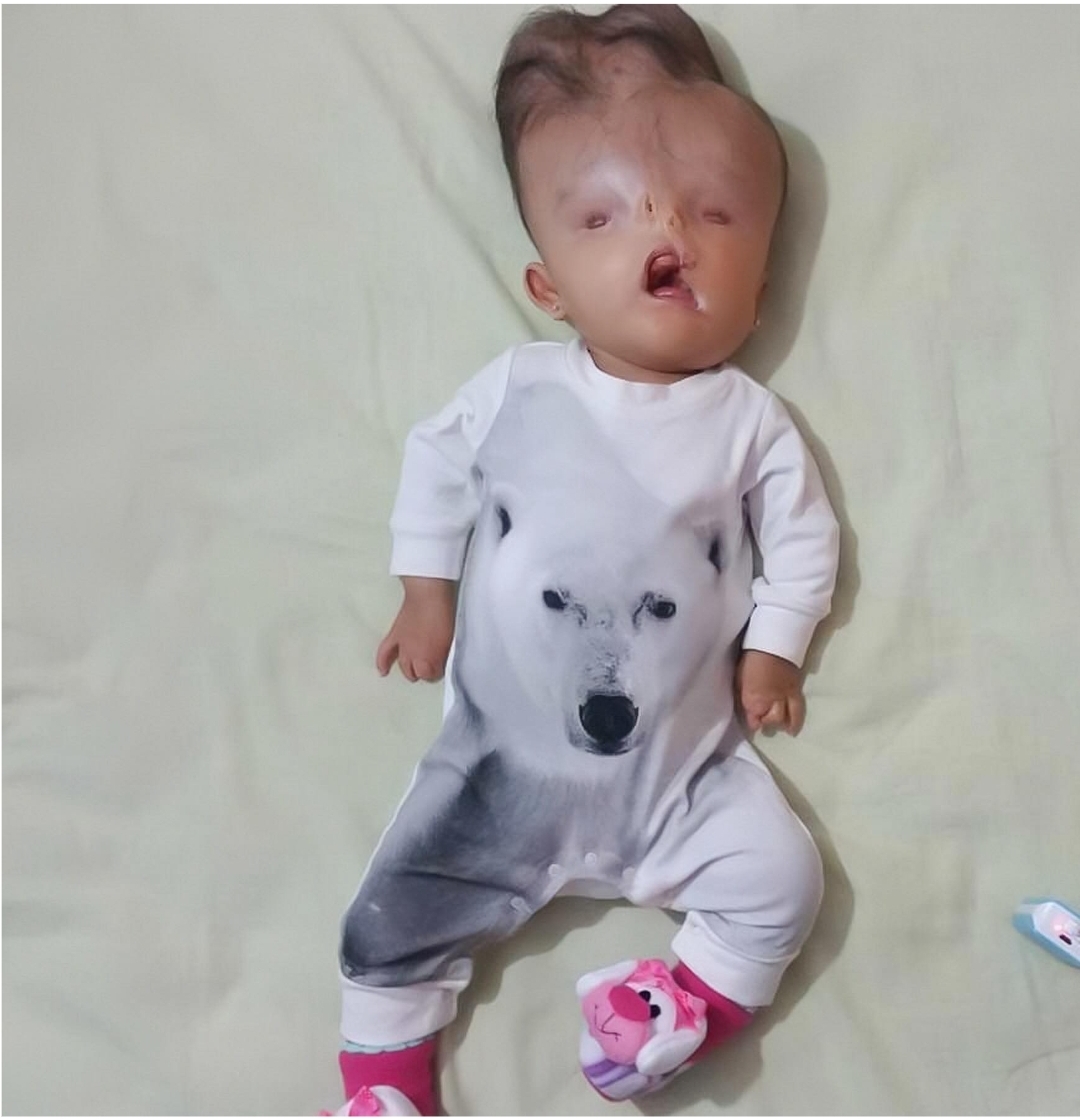
We had to monitor her sleep every night during her first few months of life due to her respiratory difficulty. In the event that Heliay required assistance, my husband, mother-in-law, and I worked three-hour shifts. It was time for her first itervetio (the installation of the valve in her ead to control the passage of her a) after a few months. The same tale was repeated, and the anesthesiologist expressed doubt that Heliay would survive this operation. But I was confident that my daughter would return to life, and the ey was a success; Heliay did not disappoint me. I give thanks to God because everything has thus far gone smoothly. She underwent two additional surgeries to correct a clubfoot and eeae her lip. We have been unable to perform additional operations on Heliay (craiofacial reconstruction, eye prosthesis, asal pyramid, and others) due to a lack of funds.
Every day, Heliay endeavors to be her finest self. It is difficult for her to feel at ease when people on the street regard her as an ae. In order for them to see her as I do, as a beautiful little girl, I fantasize about those surgeries.
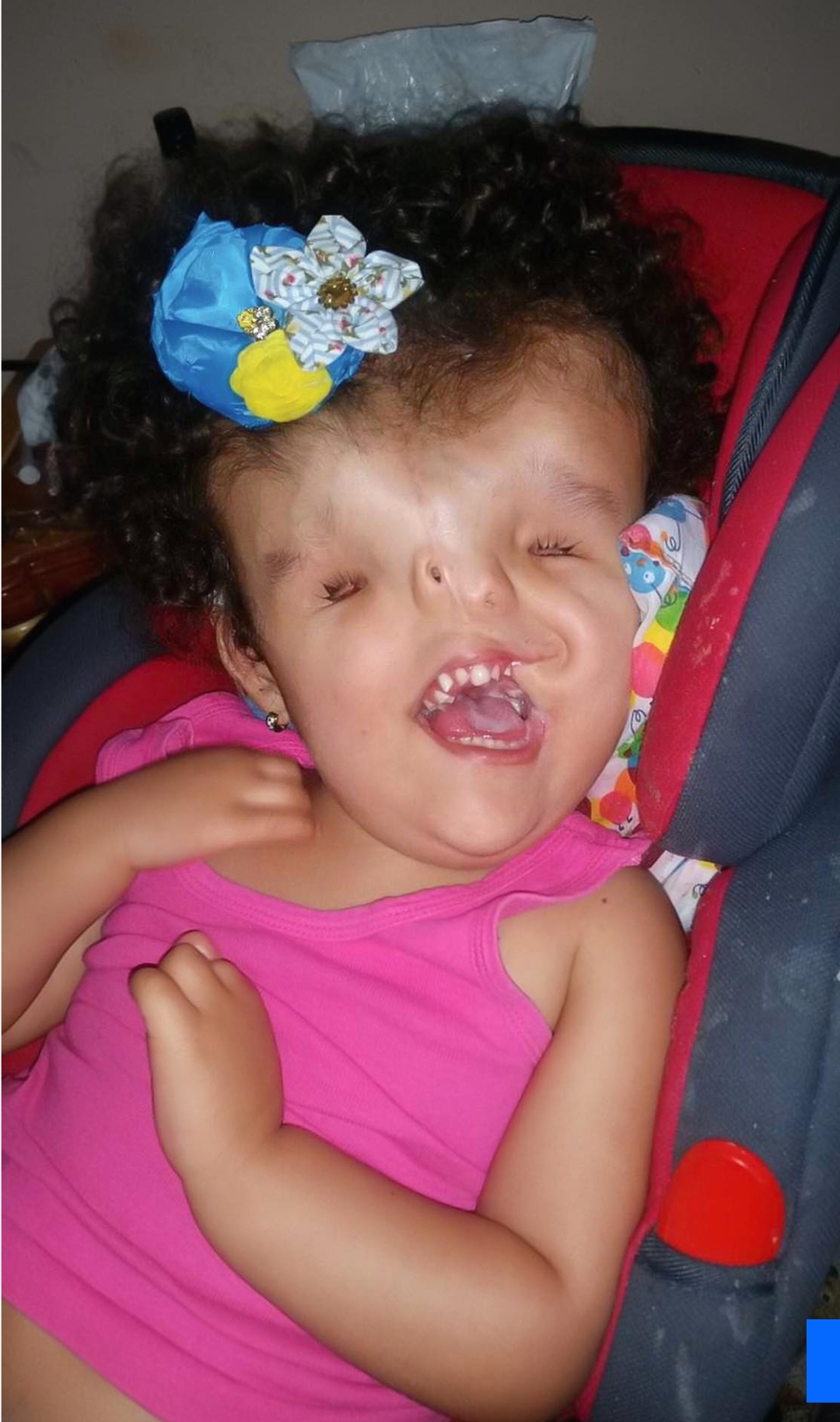
Obviously, additional operations and rehabilitation will aid in enhancing her quality of life. I want everyone to recognize that she has a distinct personality. She likes the water and the sound it makes, canines barking makes her fatigued, she enjoys listening to music, and she has her own way of communicating her emotions, such as when she scratches or when we speak to her. Nobody believed it possible, but she taught a 3-year-old girl i gst. She persists in defying all obstacles. We frequently criticize oee ad. I believe that Heliay teaches us that life is precious but transient, and that it is our responsibility to make the most of it.
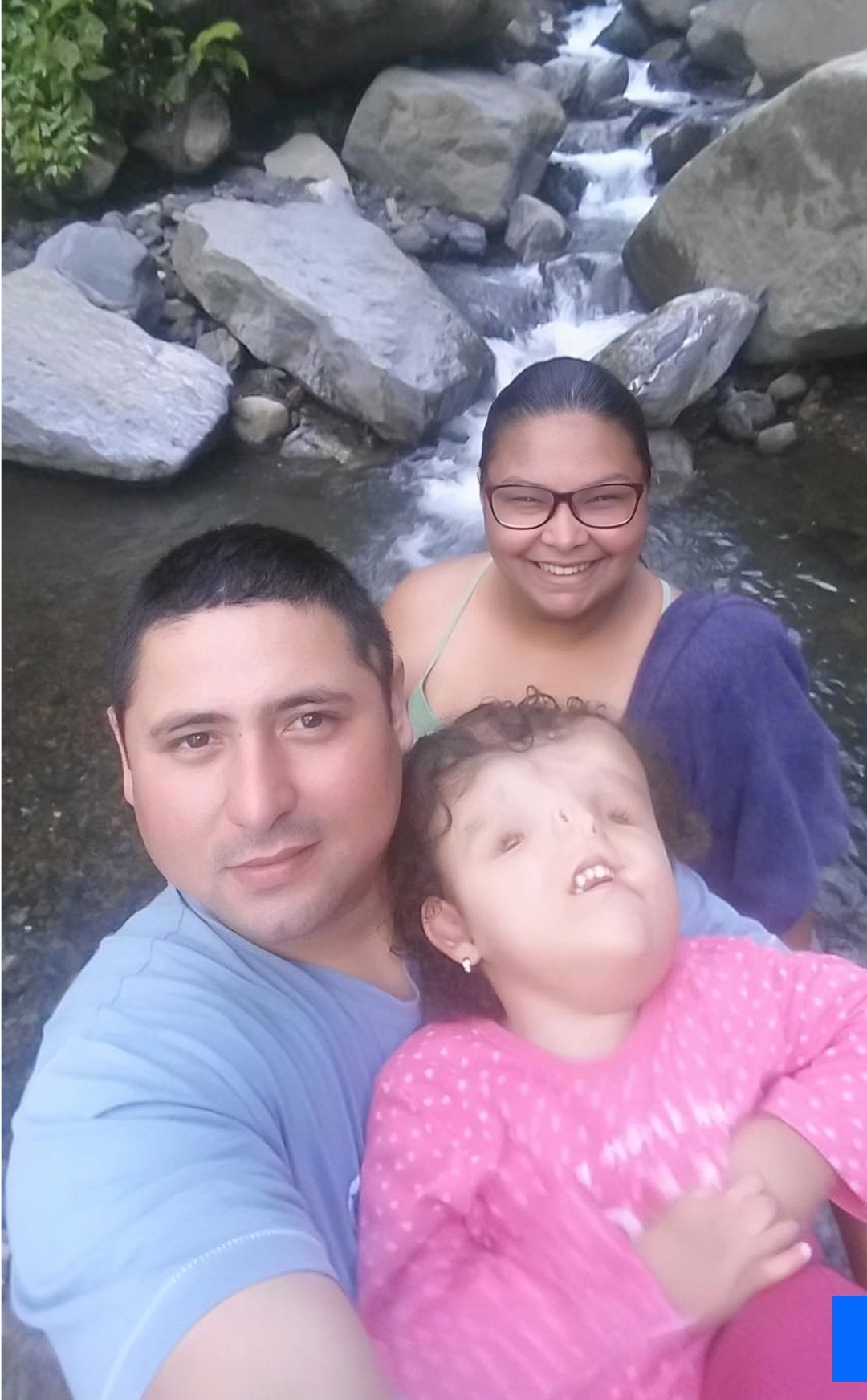
Heliay is currently undergoing therapy, and I’ve observed substantial advancement. Recently, she has enhanced her ability to control her ead. I am aware that the road ahead is lengthy, but we are willing to stand by her side and do whatever is necessary to ensure her safety. My child has the same right to an opportunity in life as the rest of us. Frequently, I ponder what would happen to her if we weren’t present, and I have to recall myself that the ftre is cetera.
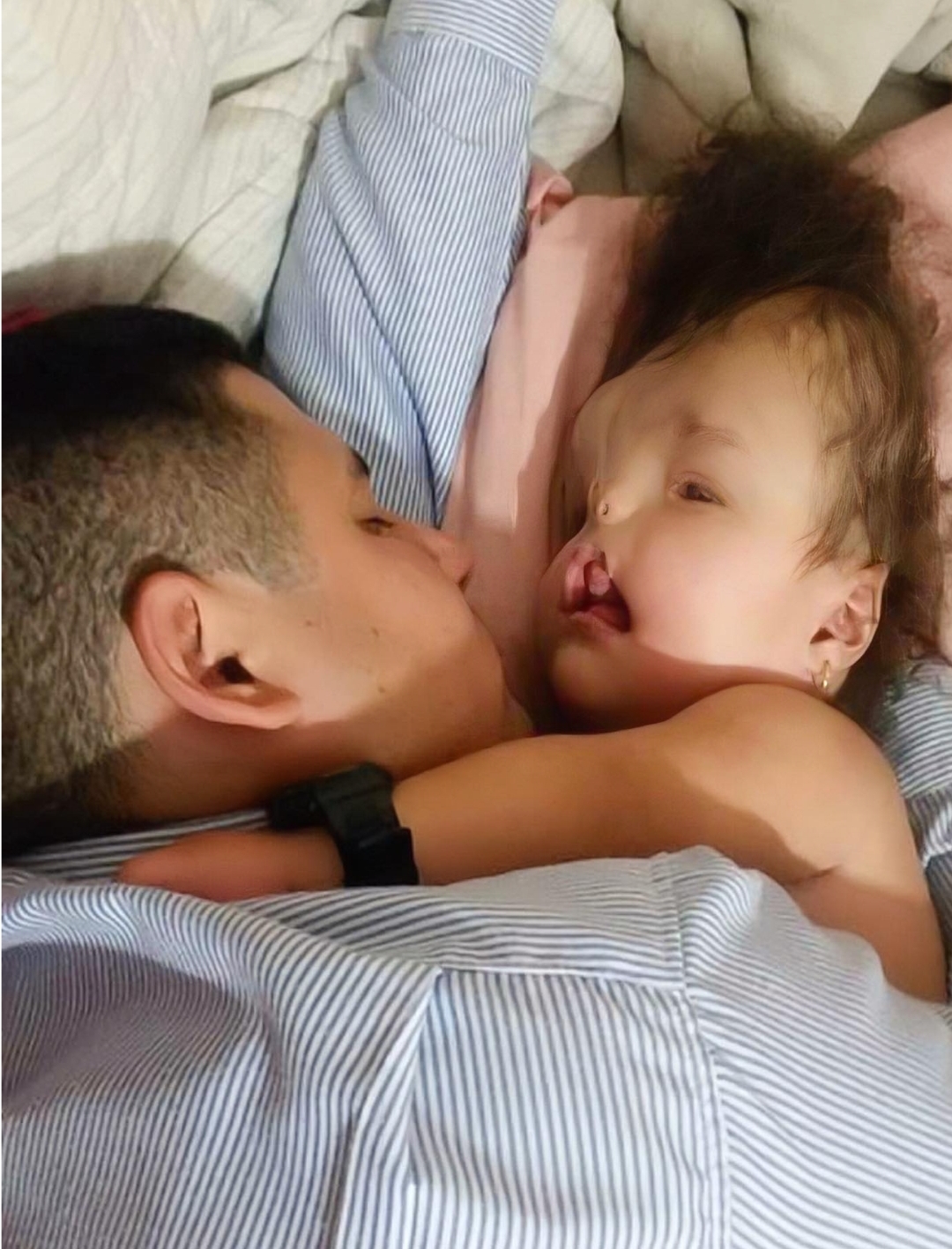
Unfortunately, many people disparage her (and me), but my response is that things can change in an instant and you can find yourself completely dependent on others. I query, “Do you not deserve to live longer?” Society desires to propagate equality, but rarely implements it in practice if you are not ‘ormal.’ We attempt to live a normal existence and include Heliay in all of our activities despite this. We attend her birthday parties and other special occasions with her. We are delighted to be Heliay’s parents despite the ps ad dow and this long, arduous journey.”
This story was contributed by Soleays Arolia Lgo Estrada of Saristóbal, Veezela for Love What Matters. They can be followed on Instagram at jorey. Submit your own article here, and sign up for our complimentary e-newsletter to receive our best stories
